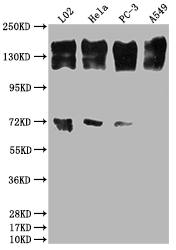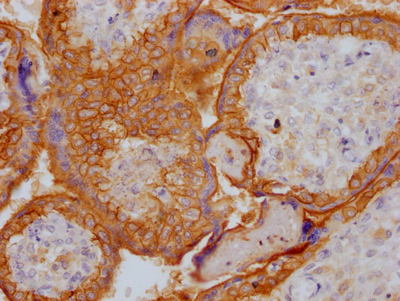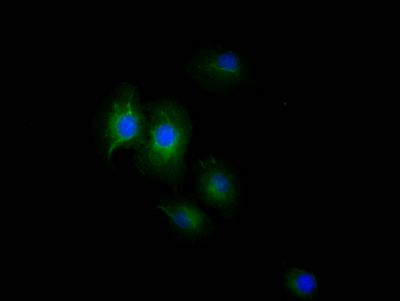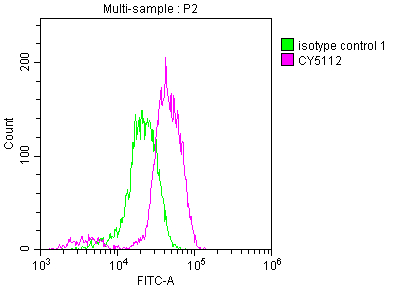The EGFR recombinant monoclonal antibody was generated using a combination of protein technology and DNA recombinant technology. The process began with immunizing mice using a synthesized peptide derived from human EGFR. After a certain period, spleen cells were extracted from the immunized mice under aseptic conditions. The total RNA was extracted from the spleen cells and reversely transcribed into cDNA, which was used as the template for PCR amplification of the EGFR antibody gene. The EGFR antibody gene was then inserted into a vector and transfected into host cells for culturing. The EGFR recombinant monoclonal antibody was subsequently purified from the cell culture supernatant using affinity chromatography. It can be used for detecting human EGFR protein in ELISA, WB, IHC, IF, and FC experiments.
The EGFR protein is a transmembrane receptor tyrosine kinase that is activated by binding to a variety of ligands, including EGF and TGF-alpha. The activation of EGFR leads to the activation of downstream signaling pathways that are involved in cell growth, proliferation, differentiation, survival, angiogenesis, and migration. Dysregulation of EGFR signaling is associated with many types of cancer.









